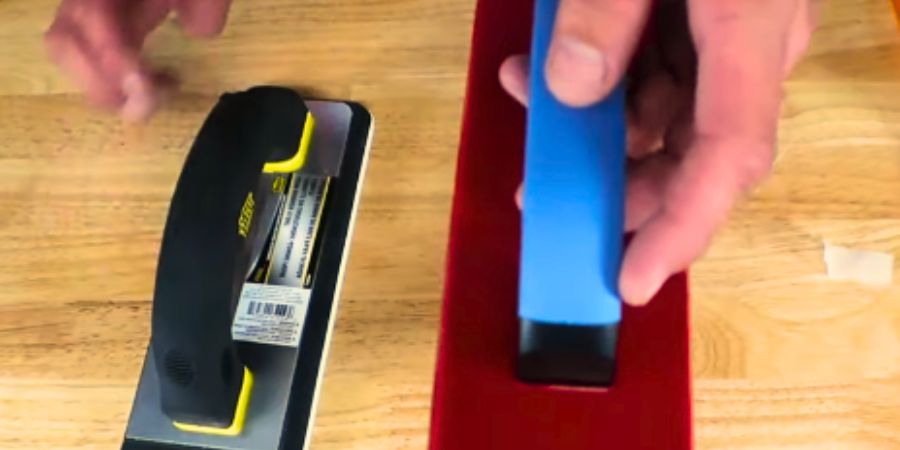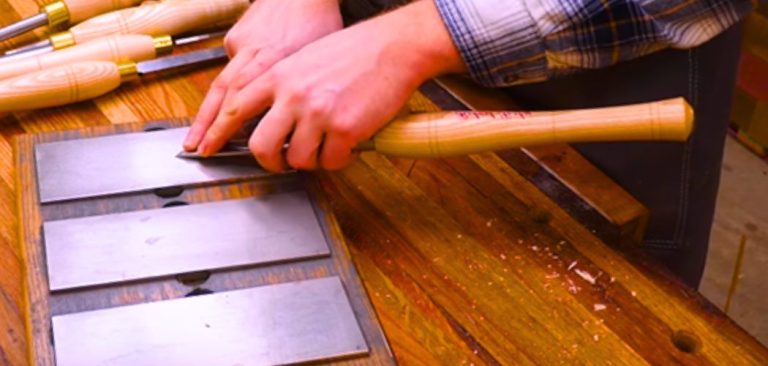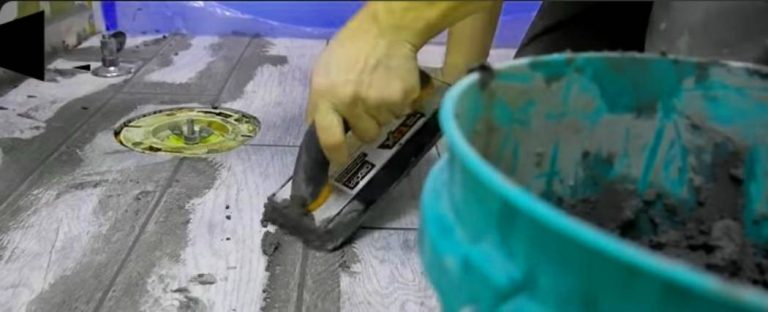Grout Bag vs Float: Which Tool Will Elevate Your Tile Game?
Whether using a grout bag or float, preparing your area by cleaning the joints guarantees a polished result when grouting tile. When applying grout, it is important to protect the tiles with masking tape to ensure a precise and clean appearance.

When grouting tile, the appropriate equipment matters. Whether you should use a grout float or a grout bag for tile depends on how easy it is to apply and how well the finished product looks. Today, I will describe the Grout Bag vs Float, which is essential for you.
Grout Float: Features and Benefits
To provide a professional finish and thorough grout application, grout floats are necessary equipment for tile installation. Usually made of rubber or plastic, these instruments provide a level surface perfect for packing grout into tile joints,
allowing for better penetration and compaction than with sponges or putty knives. Grout floats work especially well under counters and in other difficult-to-reach places.

Key Features of Grout Floats
Material and Design:
The base of grout floats is frequently composed of foam, rubber, or other materials, fastened to a handle. With every crack filled, grout can be distributed and smoothed uniformly, resulting in strong bonds and a uniform finish.
Types and Uses:
Grout floats come in a variety of sizes and forms to accommodate a range of tiling tasks, such as wall and floor installations. To further increase their versatility, they can also be used with large format tiles.
Durability and Cost-Effectiveness:
With the right maintenance and storage, these instruments can last for years in addition to being reasonably priced.
Benefits of Using Grout Floats
Precision and Ease of Use: Grout floats facilitate precise grout application, ensuring smooth and even grout lines and a polished appearance. The flat, rubber base of the float aids in pushing epoxy grout into gaps effectively.
Maintenance and Hygiene:
Properly maintained grout helps prevent the growth of bacteria and mold, which can damage floors and pose health risks. Sealing the grout after curing is crucial to protect it from cracks and bacteria buildup.
Innovative Features:
Some grout floats, like the Roff grout floater, are designed to prevent scratches on the tile surface. These floats also have a strong grip and do not slip, making them ideal for delicate tasks such as applying grout on glass mosaics.
Grout floats not only enhance the efficiency of grouting tasks but also contribute significantly to the longevity and aesthetics of tile installations.
Grout Bag: Features and Benefits
Grout bags offer a specialized solution for masonry and tiling projects that require precise grout application. These tools are particularly beneficial when working with stone veneer walls or intricate tile patterns where precision is paramount.

Key Features of Grout Bags
Design and Material:
Grout bags are typically made from heavy-duty plastic, ensuring durability and resistance to leaks. The seamless construction and fused seams provide a water-tight seal, preventing blow-outs during use.
Customizable Tip:
The tip of the grout bag can be cut to the desired width, allowing for customization based on the joint size or the specific needs of the project. This feature makes it versatile for various masonry tasks.
Ease of Use:
Designed for straightforward operation, users can fill the bag with grout, cut the tip, and begin the application process. The smooth inner lining facilitates consistent grout flow, enhancing the ease of grout application.
Benefits of Using Grout Bags
Precision Application:
Grout bags allow for more controlled and precise grout application, reducing mess and waste. This precision is particularly advantageous in projects requiring detailed workmanship.
Cost-Effectiveness:
With a price range typically between $2 to $5 per piece, grout bags are an affordable option for both DIY enthusiasts and professional contractors.
Disposable and Reusable Options:
Depending on the project’s needs, there are disposable and reusable grout bag options available. Disposable bags offer convenience, while reusable bags provide cost savings for larger or ongoing projects.
Grout bags are not only effective in traditional tiling and masonry but also play a critical role in specialized applications such as marine projects where they help manage bed tolerances and environmental challenges.
Comparative Analysis: Grout Bag vs Float
Grout Floats: Grout floats are generally preferred for their dual functionality; they not only apply grout but also smooth joints simultaneously, streamlining the grouting process.
Grout Bags:
Designed for straightforward operation, grout bags facilitate easy filling and initiation of the grouting process. The design of these bags allows for a user-friendly experience, especially for beginners.
Precision in Application
Adjustable Tips on Grout Bags:
The adjustable blue tip end on grout bags enables precise application, allowing users to control the flow and placement of grout, which is particularly advantageous in detailed or intricate tiling areas.
Grout Floats’ Versatility:
Though primarily used for broader applications, with adequate practice, grout floats can achieve a high level of precision, especially when used alongside a sponge for final touch-ups.
Specialized Situations:
In scenarios involving narrow or complex tiling patterns, grout bags offer more precision compared to grout floats, making them the tool of choice for such detailed work.
Alternative Tools for Specific Needs
Sponges as Alternatives:
In the absence of a grout float, various types of sponges can be employed for grouting tiles. A car wash sponge is recommended for floor tiles, while a household scourer with a sponge back is suitable for wall tiles, providing flexibility and convenience in tile grouting.
Practical Recommendations and Conclusion for Grout Bag vs Float
It may be complicated to determine which tool to use. So I’m giving you a simple direction:
Gout Bag
Like the Fancy icing Dispenser, it allows you to fill those small gaps accuracy. Fidly tile patterns or are great to keep the grout away from the subtle surface (but it takes practice!).
Gout Float
Like one more schizie, it is suitable for quick large regions to cover. Ideal for apprenticeship or large projects, but be ready to spend some time cleaning the extra grout from the tiles.
Judgment
Small projects with fancy tiles? Target for Gout Bags for final control. The newcomer is dealing with a large floor? Gout is your friend for floating speed and ease.
FAQs
What is the necessity of using a grout float?
To apply grout correctly, you must use a rubber grout float. This tool has a rectangular pad made of non-stick gum rubber or soft nylon, which is both firm and flexible. It is designed to prevent the absorption of materials, making it essential for proper grout application.
How can I select the appropriate grout float for my tiling project?
When choosing a grout float, consider the pad’s hardness based on the surface you are working with. For delicate surfaces like glass and marble that are easily scratched, a soft pad is best. A medium pad is generally suitable for most ceramic tile projects and can be used on all but the most sensitive surfaces. For rough stone or hard tiling that is scratch-resistant, a hard pad is the ideal choice.
Are grout bags effective for tiling?
Grout bags can be quite useful, especially for walls with tiles or bricks that have large and deep joints. They are particularly helpful for applying sanded grout on smooth wall tiles or any wall tile with significant grouting. While grout bags can still be messy, they offer a practical solution for certain tiling situations.
Which type of grout is most recommended by professional tilers?
Jim Whitfield, the manager of Technical Services at Mapei, advises industry professionals that epoxy grout is highly durable and wears exceptionally well over time. Unlike cement grout, which can wear down and form grooves that collect dirt and debris, epoxy grout remains robust and does not degrade in the same way, making it a favored choice among tilers.






